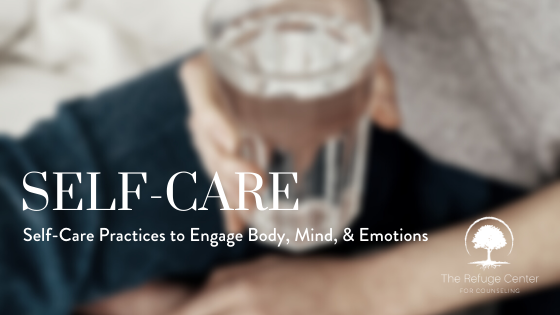As a weary world recently welcomed the arrival of Daylight Saving Time, the return of longer days has reminded me of how much an increase in sunlight improves my mood. This checks out scientifically, of course – days with plenty of sunshine are associated with better mental health. In fact, the availability of sunshine has been shown to have more impact on mood than any other environmental factor!
Although fun facts such as this one might make for a great Tweet, mental health discussions often center around the treatment of mental health rather than its natural supports. So, this spring, here are a few natural, evidence-based supports that can help you intentionally nurture your mental health.
Exercise
One such natural mental health support is exercise.
- For example, a growing amount of research supports exercise as an aid in the prevention of depressed mood. One study found that increased exercise levels have significant protective effects against depression across a variety of ages and countries.[1]
- Another recent study similarly concluded that consistent physical activity is an important support in the prevention of depression.[2]
Mindfulness
Mindfulness-based strategies are being increasingly relied upon in improving mental health. Jon Kabat Zinn, known for his work on mindfulness, defines mindfulness as “the awareness that arises from paying attention, on purpose, in the present moment and non-judgmentally.”
- One recent study followed patients with anxiety as they participated in mindfulness-based groups. All patients experienced a significant decrease in anxiety symptoms (Fuchs et al., 2016).[3]
- Another recent study on the effectiveness of mindfulness concluded, “Mindfulness is a promising mental health protection”.[4]
Nutrition
Although much research has been done on the connection between nutrition and physical health, it is only in recent years that research has begun to focus on the role nutrition plays in mental health.
- Much research today shows that mental health can be greatly influenced by nutrition. In one study (with over 10,000 participants!) those who ate a diet rich in healthy fats, fish, fruit, nuts, and vegetables had a lower risk for depression four years later than people who consumed diets with fewer of these foods.[5]
- Fish oil has been repeatedly shown to be effective in lowering depression risk. Additionally, deficiencies of key nutrients (such as folate, vitamin B12, iron, zinc, and selenium) have been shown to increase depression risk.[6]
While the above supports are certainly not “cure-alls” or replacements for any type of mental healthcare, they can be great complements to your day-to-day routine.
If you would like additional support as we go into spring, please call us at 615-591-5262.
[1] Schuch, F. B., & Stubbs, B. (2019). The role of exercise in preventing and treating depression. Current Sports Medicine Reports, 18(8), 299–304. https://doi.org/10.1249/jsr.0000000000000620
[2] Mammen, G., & Faulkner, G. (2013). Physical activity and the prevention of depression. American Journal of Preventive Medicine, 45(5), 649–657. https://doi.org/10.1016/j.amepre.2013.08.001
[3] Fuchs, C. H., Haradhvala, N., Evans, D. R., Nash, J. M., Weisberg, R. B., & Uebelacker, L. A. (2016). Implementation of an acceptance- and mindfulness-based group for depression and anxiety in primary care: Initial outcomes. Families, Systems, & Health, 34(4), 386– 395. https://doi.org/10.1037/fsh0000237
[4] Hofmann, S. G., Sawyer, A. T., Witt, A. A., & Oh, D. (2010). The effect of mindfulness-based therapy on anxiety and depression: A meta-analytic review. Journal of Consulting and Clinical Psychology, 78(2), 169–183. https://doi.org/10.1037/a0018555
[5] Kiecolt-Glaser, J. K., Jaremka, L. M., & Hughes, S. (2014). Psychiatry and social nutritional neuroscience. World Psychiatry, 13(2), 151–152. https://doi.org/10.1002/wps.20127
[6] Kiecolt-Glaser, J. K., Jaremka, L. M., & Hughes, S. (2014). Psychiatry and social nutritional
neuroscience. World Psychiatry, 13(2), 151–152. https://doi.org/10.1002/wps.20127
Blog written by Master’s Level Intern, Kate Moody
Share this post
Share on facebook
Share on twitter
Share on linkedin
Share on pinterest
Share on print
Share on email
About Us
Who We Serve
Get Involved
-
Connections Lunch
-
Sponsorship Opportunities
-
Volunteer
-
Internship Opportunities
-
Post Master’s Fellowship Program
What’s Happening
Follow Us
Instagram
Facebook
Twitter
Youtube
Pinterest
The Refuge Center for Counseling is a 501c3 nonprofit organization (20-3831943). We are also a United Way of Williamson County Partner Organization.






